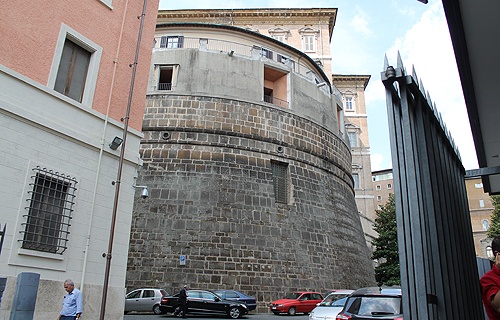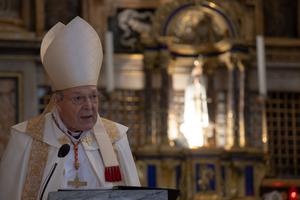Accounts of Former Vatican Bank Directors Frozen
The officials are being investigated by a Vatican prosecutor for suspected embezzlement of funds between 2001 and 2008.

VATICAN CITY — More than $19.6 million in the accounts of two former managers of the Institute for Religious Works (IOR), commonly known as the Vatican Bank, have been frozen by a Vatican prosecutor in the course of an investigation, it was announced Sunday.
At a Dec. 6 press conference, Holy See press officer Jesuit Father Federico Lombardi confirmed that Gian Piero Milano, promoter of justice for Vatican city state, was investigating two former IOR directors regarding suspected embezzlement between 2001 and 2008.
The investigation is based on suspicions aroused during a 2013 internal review, part of ongoing financial reform at the Vatican aimed at transparency and tackling money laundering.
Father Lombardi added that the accounts of those under investigation were frozen “as a precautionary measure.”
Writing for Reuters on Saturday, Philip Pullella said Milano suspected Angelo Caloia, a former president of the IOR; Lelio Scaletti, its former director general; and Gabriele Liuzzo, a lawyer, of embezzlement of funds relating to the sale of 29 buildings that had been sold by the institution.
The IOR announced that it was pressing charges against the three in keeping with its “commitment to transparency and zero tolerance.”
According to Pullella, “In the freezing order, Milano said Caloia and Scaletti regularly under-represented the proceeds from real-estate sales in the Vatican Bank’s official books. The men allegedly received the difference between the real sale prices and the amount officially recorded separately and often in cash, according to the order.”
Milano charges that, over the seven-year period, the three embezzled more than $70.2 million in this way.
Financial reform at the Vatican is being headed by Cardinal George Pell, prefect of the recently established Secretariat for the Economy.
In a Dec. 4 article for the Catholic Herald, he wrote that the principles at the heart of his reform are the adoption of international financial standards, transparency and a separation of powers.
The normalization of Vatican finances was begun in 2010 by Benedict XVI, the cardinal noted, with the establishment of the Financial Information Authority, an agency “dedicated to preventing and eradicating money laundering.”
Pope Francis has continued this process of reforms, Cardinal Pell noted, “which are well under way and already past the point where it would be possible to return to the ‘bad old days.’ Much remains to be done, but the primary structural reforms are in place.”
Continuing reform, he noted, is “designed to make all Vatican financial agencies boringly successful, so that they do not merit much press attention.”

















